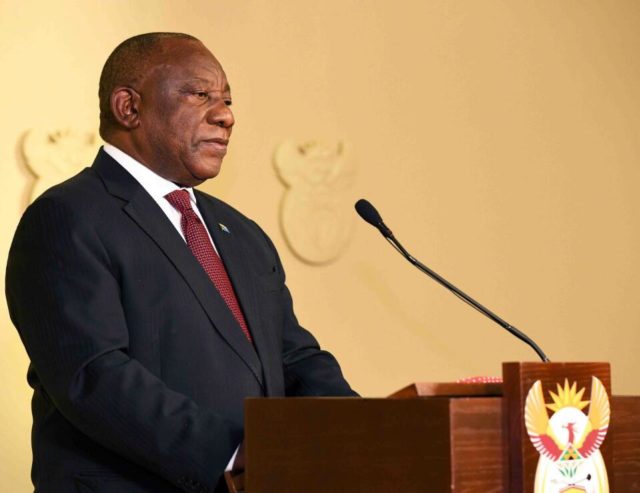President Cyril Ramaphosa has admitted that some of the government’s lockdown regulations have been “contradictory and some poorly explained”.
PRESIDENT Cyril Ramaphosa has admitted that some of the government’s lockdown regulations have been “contradictory and some poorly explained”.
Ramaphosa made the admission when he addressed the country on Wednesday night.
There has been widespread criticism on the government’s handling of regulations about level 4 of the national lockdown. The most recent criticism came on Tuesday night when the department of trade and industry released guidelines for retailers on which clothes could be sold.
Minister Ebrahim Patel was criticised for what appeared to be far-reaching and unclear regulations on what could be defined as winter clothing.
There has also been criticism of how the government dealt with the ban on tobacco sales.
Ramaphosa said he has heard the criticism and comments, but the government is willing to take measures that will help save the lives of South Africans.
“And that is why we must acknowledge that as we have confronted this unprecedented challenge, there may have been times when we have fallen short of your expectations. Some of the actions we have taken have been unclear, some have been contradictory and some have been poorly explained.
“Implementation has sometimes been slow and enforcement has sometimes been inconsistent and too harsh. This evening, I want to reaffirm my commitment and the commitment of the government I lead to take whatever action is necessary to safeguard the life, the dignity and the interests of the South African people,” the president said.
He explained that the prevention measures put in place were there to safeguard the lives of citizens. These measures include;
– Lockdown (to achieve extreme social distancing)
– Social distancing
– Adopting hand hygiene practices by washing hands regularly with water and soap or sanitiser
– Cough etiquette including coughing into your elbow or a tissue
– Wearing cloth masks whenever you are in public places
– Use of personal protection equipment by all health workers
– Frequent cleaning of the work environment and other public spaces
– Symptom screening
– Testing, isolation, quarantine and contact tracing
“It is in the implementation of all these preventative measures that we will overcome this disease. The success of our efforts to limit transmission of the virus depends on finding those who are infected as early as possible, tracing their contacts and isolating them so they cannot pass on the virus to others. Our door-to-door screening campaign in vulnerable communities across the country resulted in over 10 000 people being referred for testing,” he said.
Ramaphosa reiterated that if the national lockdown had never been implemented the scientific projections showed that the country could have seen 80 000 cases by now with deaths doubling. He said that in comparison to countries like the UK and the USA, the country’s rise in cases has been steady. There had been 181 confirmed cases for every 1 million people, the president said.
As of Wednesday, the number of confirmed cases had reached over 12 000 with 219 deaths and over 4700 recoveries.
He said over the next few weeks consultations would get underway to ease some parts of the country into level 3 while hotspots remain in level four.
With regards to economic measures, Ramaphosa commended the R11 billion paid out through the UIF Covid-19 relief fund – which will benefit 2 million employees. The Solidarity Fund had received over R2 billion pledges. He said more economic measures would be announced in the coming weeks.








